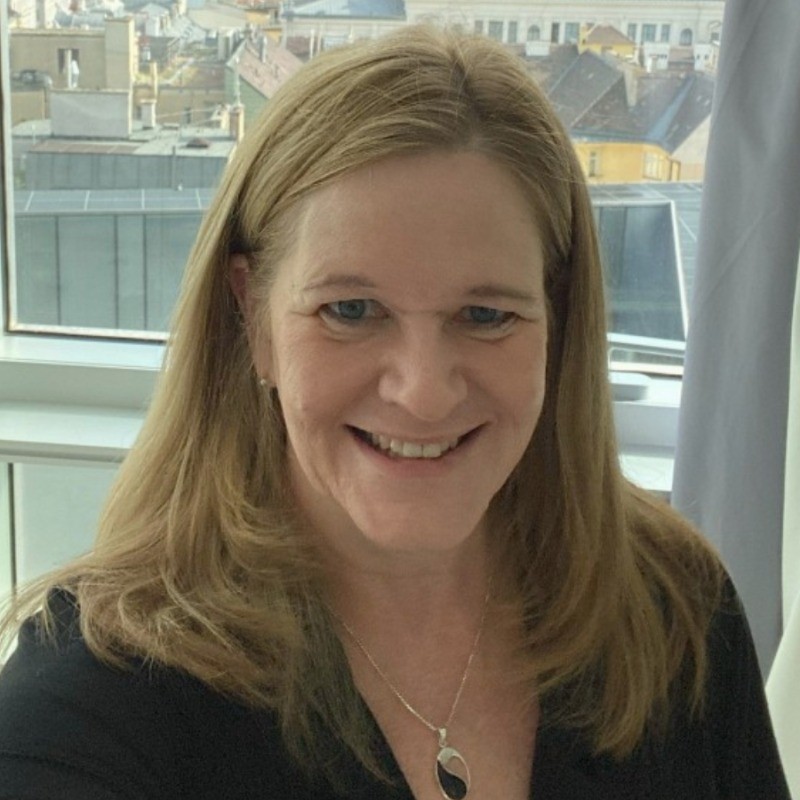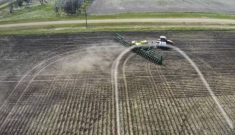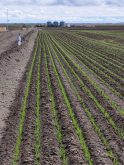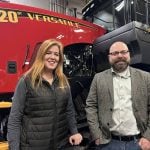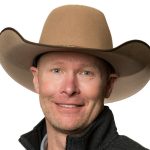Jason Kambeitz knows that when farmers get together over coffee and the conversation turns to farmland investment companies like Assiniboia Capital and AgCapita, the
smiles disappear and a sober seriousness takes over. By buying up local farmland, the talk goes, the big funds are driving up land prices, and they re taking capital out of rural communities too.
It can t end well, the consensus often says.
But not all of the stories are bad. Jordan himself is a case study in how working with these companies may be a new opportunity for young farmers who want to build up a successful farms.
Read Also
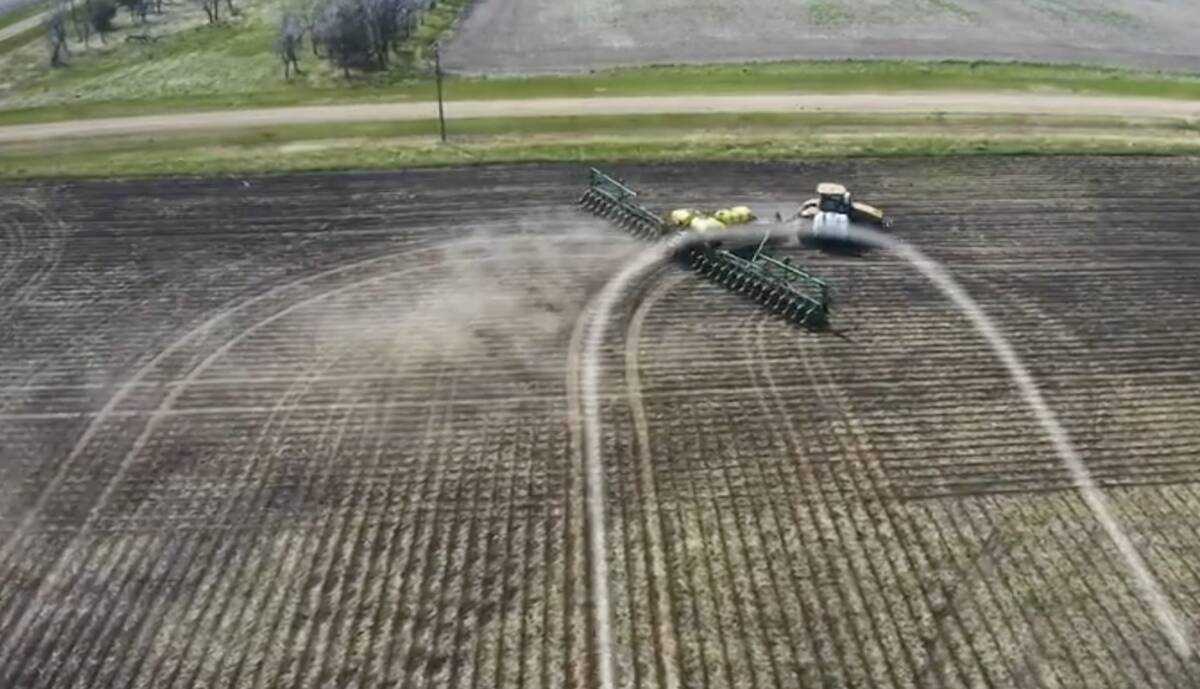
Are farmers ready for the digital ag revolution?
How farmers are using technology to remain competitive, find opportunities and meet challenges.
Kambeitz grew up in Regina. Now he s running a grain farm, partly from behind a desk at his office in the city where he is cofounder and managing partner of Kingsland Energy Corp., an oil and gas development firm based in Regina. Kingsland owns over 20,000 acres of mineral rights in southeast Saskatchewan and southwest Manitoba.
But don t try telling Kambeitz that he isn t a farmer. This is where I hang my hat when I m not at the farm, he says.
Nor should you make the mistake that there is anything part-time or scaled down about Kambeitz s farming objectives. At only 30, he is already running a 10,000-acre farm near Sedley, Sask. and is expanding into the Kronau area.
The rental model has allowed our operation to grow at a faster rate than would otherwise be possible, says Kambeitz who owns about 3,000 acres and rents the remaining 7,000.
The cost of growing a bushel of product is too great, Kambeitz says. You can t have all your capital tied up in land ownership and expect to grow at the rate you want to grow. The majority of the land Kambeitz rents is owned by his father and uncle, and he also rents some odds and ends from retired farmers.
And, some of the acres Kambeitz rents are managed by Palliser Land Management, a Regina-based company that looks after 115,000 acres of Saskatchewan farmland owned by Assiniboia Capital Corp., as well as additional land held by other parties. Murray Gogel, Palliser s senior farmland manager, says the land Kambeitz rents is some of the best dirt in our portfolio.
Jordan s quite an entrepreneur, Gogel says.
Gogel believes his company can help famers expand their farms: We re a particularly good fit for those who are relatively young.
There are farmers with a negative attitude towards these institutional owners. I was one of them, at the beginning, Kambeitz says. He had seen non-farmer investors with deep pockets come to town to buy land that Kambeitz had hoped he might be in a position to buy himself someday.
Yet after working with Gogel and watching other young farmers rent land from investment companies to expand their land bases, Kambeitz has come to believe there are benefits to having these players in the market.
Land owned by typical farmers often gets sold from one generation to the next with no public notice and no open bidding. This can frustrate farmers like Kambeitz.
The funds put more structure in the market, he believes, and because agriculture is so cyclical, Kambeitz predicts there will come a day when land prices will fall and the companies won t be able to charge high rents. Or, investors will want to cash in their investments and buy something else. When that happens, this will all get recycled. We ll see all this land trade hands again someday.
As evidence, Kambeitz cites the story of an Alberta holding company which had owned land near his farm. Last week, a 21,000- acre package sold. The holding company had bought the land not long ago, consolidating about seven farms into one block. Since then, the per acre price has doubled and the company decided to take the profit. The land didn t sell to another institutional buyer. It sold to a handful of smaller landowners.
The Alberta investors walked away with a lot of capital, but Kambeitz wonders if, overall, this capital outflow is made up for by the fact that these companies are helping young farmers.
Land funds potentially keep a lot of young guys around, Kambeitz says. There are lots of young guys who farm 2,000 acres with their dad and want to keep farming. They need to expand their land base to stay profitable, but they don t all have the capital to do that. The existence of land funds gives young farmers like this a whole new solution a large-scale landlord. When the young farmer is ready to rent land, Kambeitz explains, That farmer can call Murray Gogel and says what have you got for me?
As Kambeitz sees it, non-farm landowners have also created a timely solution for older farmers. I believe that some people from my dad s generation were scared up until four or five years ago. They were worried about how they could retire and what would happen to their land. Not all farmers have a clear succession plan, and not all farm kids are interested in farming.
In my opinion, a lot of people felt stranded, Kambeitz says. Companies like Assiniboia Capital are another potential buyer for such farmers, he says. Now, there s a way out.
But Kambeitz won t be looking for that exit door anytime soon. He s in expansion mode. I m a bit of a bull when it comes to the commodity market, Kambeitz says. I m expanding at the pace that my labour model can keep up to. He has five employees working on his farm. Two are on staff full-time, year round, and three are seasonal full-time employees.
The need to keep staff around through the slower winter months is partly a side effect of Saskatchewan s tight labour market. I fight the oilfield, Kambeitz says. Sedley is located mid-way between the southeast Saskatchewan oilfield and the city of Regina. Kambeitz has to be competitive with both of these labour markets if he s going to keep good help.
I have to offer stable employment, he says. He appreciates his staff and does what he can to keep them, like offering his full-time staff a month off in the winter. He places a high value on staff and believes that investing in people makes good economic sense. I can buy all the equipment I want, but the equipment doesn t do much if I don t have the guys to run it.
And, between his farm and his other business interests, Kambeitz realizes that he s more valuable throughout the year sitting behind my computer.
There are also his interests in Kingland Energy to attend to. Oil and gas development is moving closer to where Kambeitz farms, and being involved in the resource industry from the points of view of a developer and a farmer has given him a good understanding of both sides.
With both a farm and off-farm business interests, Kambeitz can take to his office when things are slower on the farm, or head out to the farm when he needs a break from city life. I love it, he says. I love farming. It s my escape from the office. Then he says, Is it a lifestyle or a business? I m trying to make it both. CG

